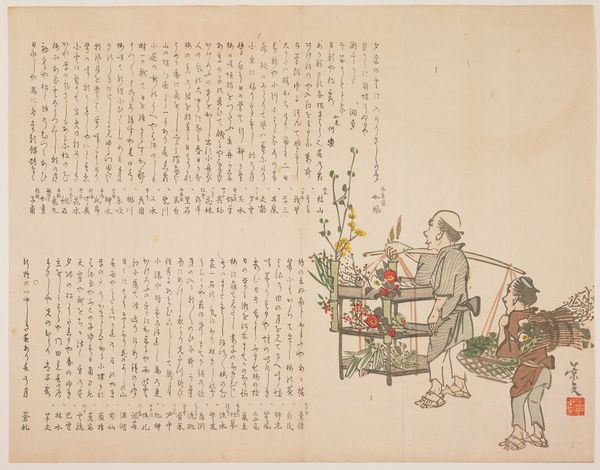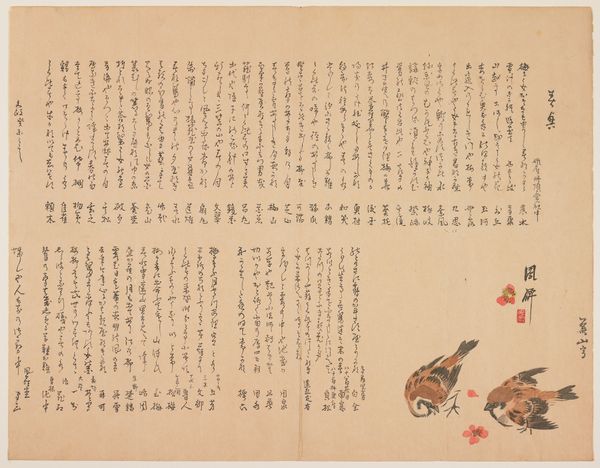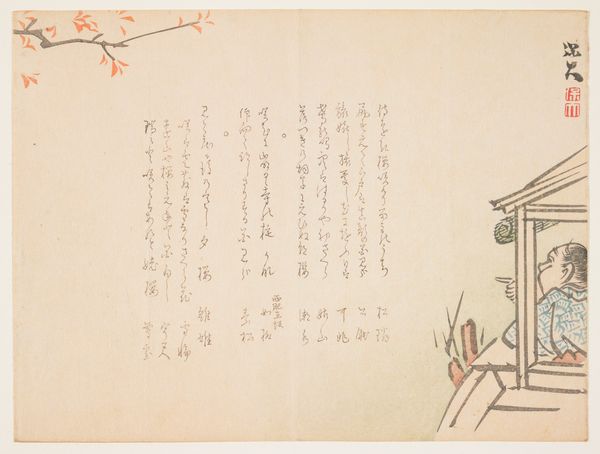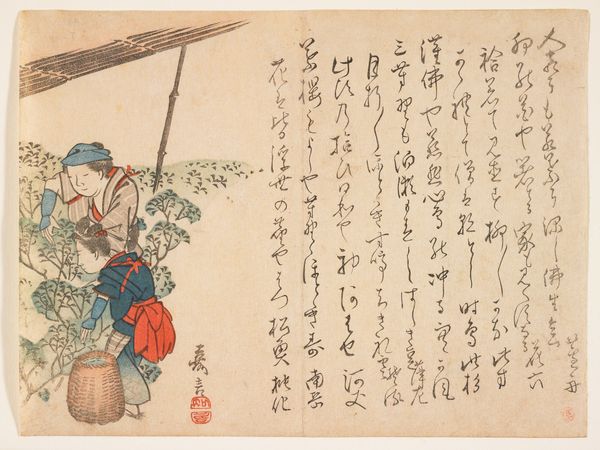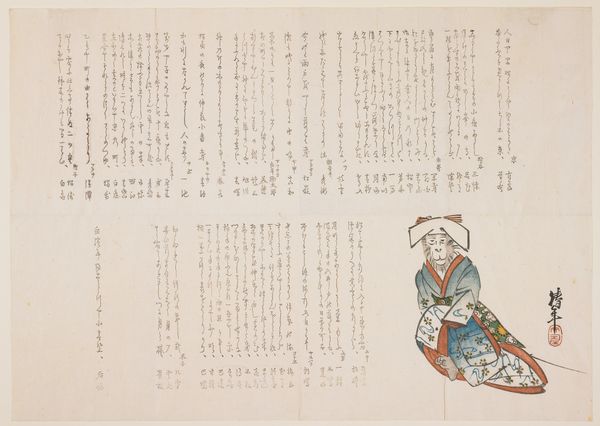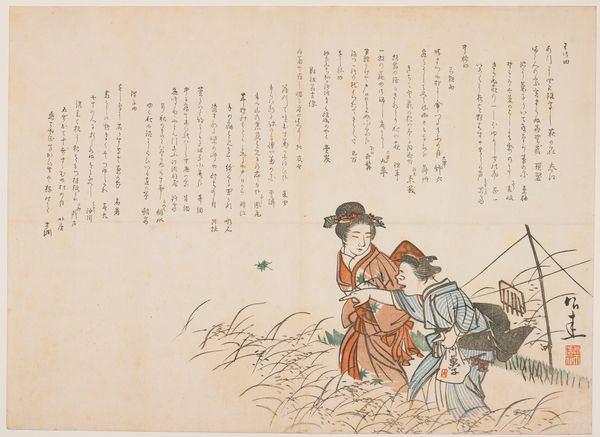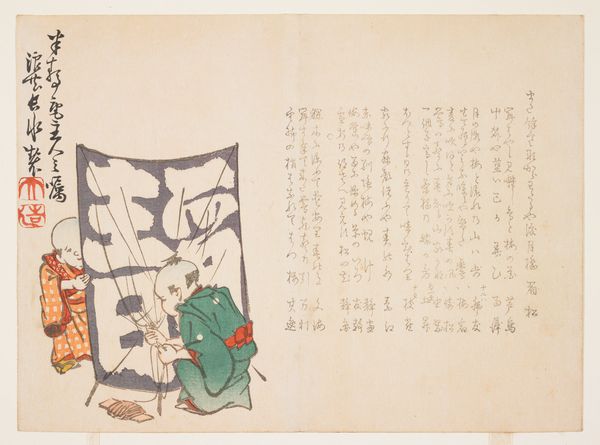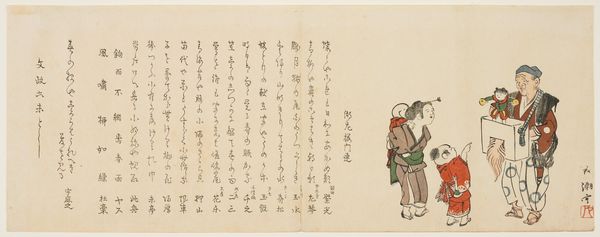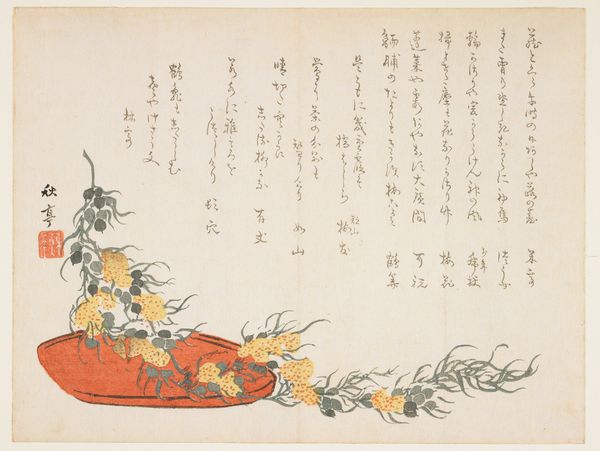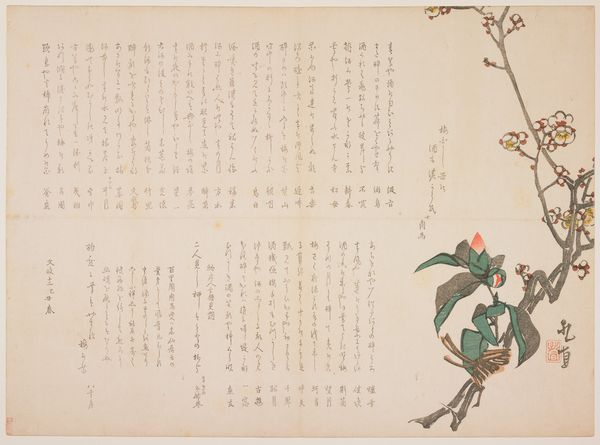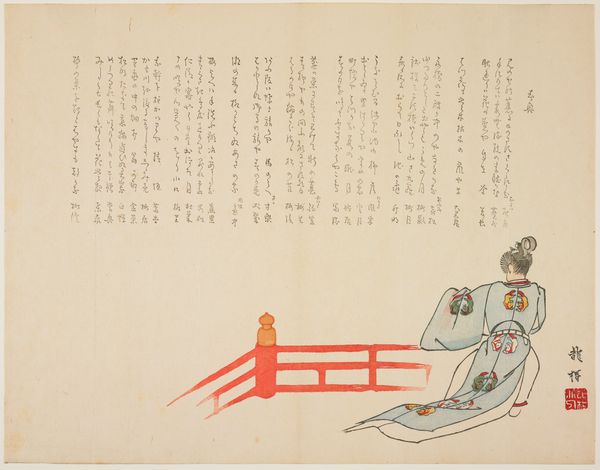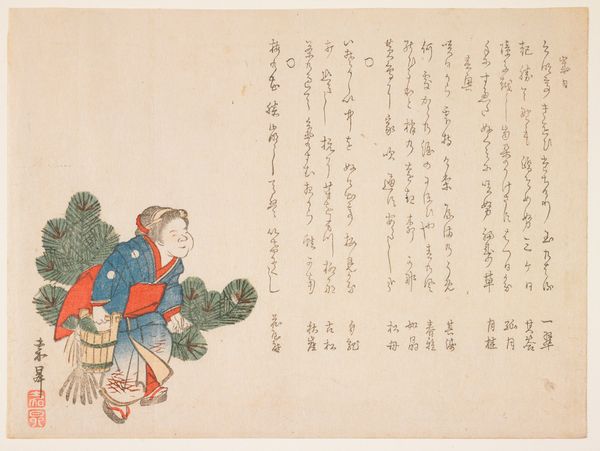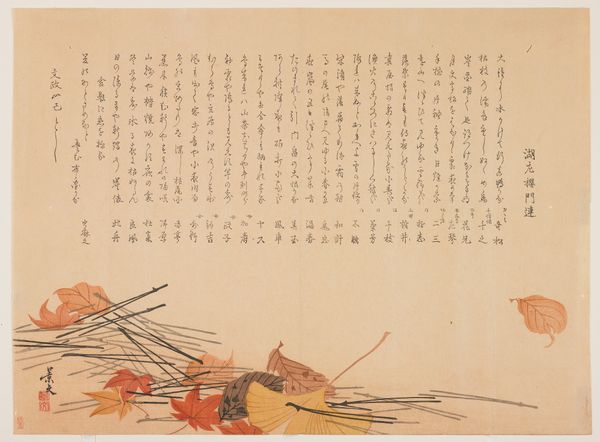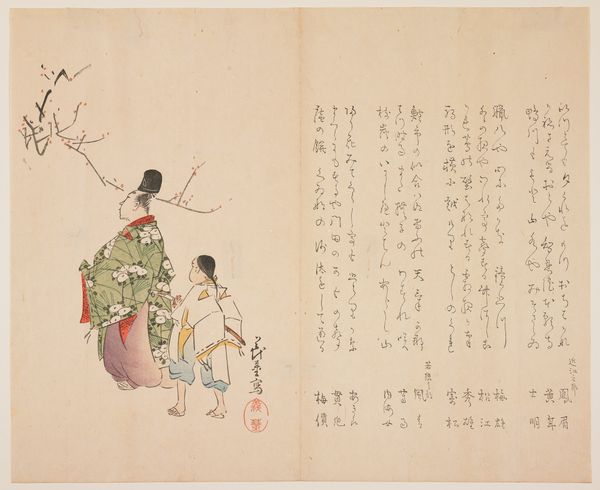
print, ink, woodblock-print
#
narrative-art
# print
#
asian-art
#
landscape
#
ukiyo-e
#
japan
#
figuration
#
personal sketchbook
#
ink
#
woodblock-print
Dimensions: 15 x 19 1/4 in. (38.1 x 48.9 cm) (image, sheet)
Copyright: Public Domain
Curator: Wow, what a serene piece. I am immediately drawn in. It has an off-kilter quality and almost feels a bit surreal. Editor: I agree. Today, we are looking at "Festival at Iwashimizu Hachiman Shrine," a woodblock print by Matsukawa Ryūchin dating from around 1840. It is currently held in the collection of the Minneapolis Institute of Art. Looking at it now, what speaks to the surreal quality for you? Curator: It’s something about the isolated figure, sort of floating there, surrounded by text. And the simplified forms give the figure a dreamlike feel; are those little...bamboo fronds...decorating the kimono? There is a sort of ethereal feeling to this depiction. What do you think Ryūchin might be trying to tell us about this festival? Editor: We can contextualize Ryūchin’s work through the lens of Edo-period social hierarchies. Festivals in Japan often served as critical social release valves, offering a temporary inversion of status, as seen in performances and parodies mocking authority figures. These gatherings created vital social cohesion. The figure almost appears to be levitating off of the paper! But his position in this tableau is fascinating. Is he a participant, or a master of ceremonies, and what could this image suggest about his own power dynamic, or social role? Curator: You make a wonderful point about the potential challenges to, and inversions of, social hierarchies. His presence, with his plant, seems both performative and somewhat contemplative. Almost melancholic? The use of empty space surrounding the figure focuses our gaze and almost exaggerates his position, suspended on the print, on the paper, as if the entire thing were weightless. The lack of detail makes it, strangely, intensely focused. Editor: Perhaps, in focusing on this single figure from the festival, Ryūchin subtly comments on individual experience amidst collective tradition. Looking beyond its surface, we start to see deeper layers about individual identity and expression in historical contexts. Curator: Yes. It’s a piece that leaves you wondering. It presents us not just with an image of a festival, but rather invites us to join in a personal reflection of the meaning of these cultural forms, both then and now. Editor: Precisely. There is a sort of quiet questioning in this image that sticks with me.
Comments
minneapolisinstituteofart about 2 years ago
⋮
The tenth-century warrior Tairano Masakado staged a revolt against the central government when he was denied the high position of kebiishi (head of the imperial warriors). The emperor dispatched troops to defeat him, and instructed priests at shrines throughout the country to pray for his subjugation. Eventually his troops were overpowered and Masakado was beheaded. Concern lingered, however, that Masakado's fierce spirit would return to cause trouble. To pacify his restive spirit, special ceremonies came to be conducted annually at Shinto shrines. At Iwashimizu Hachiman Shrine on Mount Otoko in early spring, splendidly dressed shrine officiates perform a special dance to chanting and music meant to console Masakado's spirit and ensure continued peace. Here a dancer holds a branch of the sacred sakaki tree used to ritualistically sweep away evil.
Join the conversation
Join millions of artists and users on Artera today and experience the ultimate creative platform.
